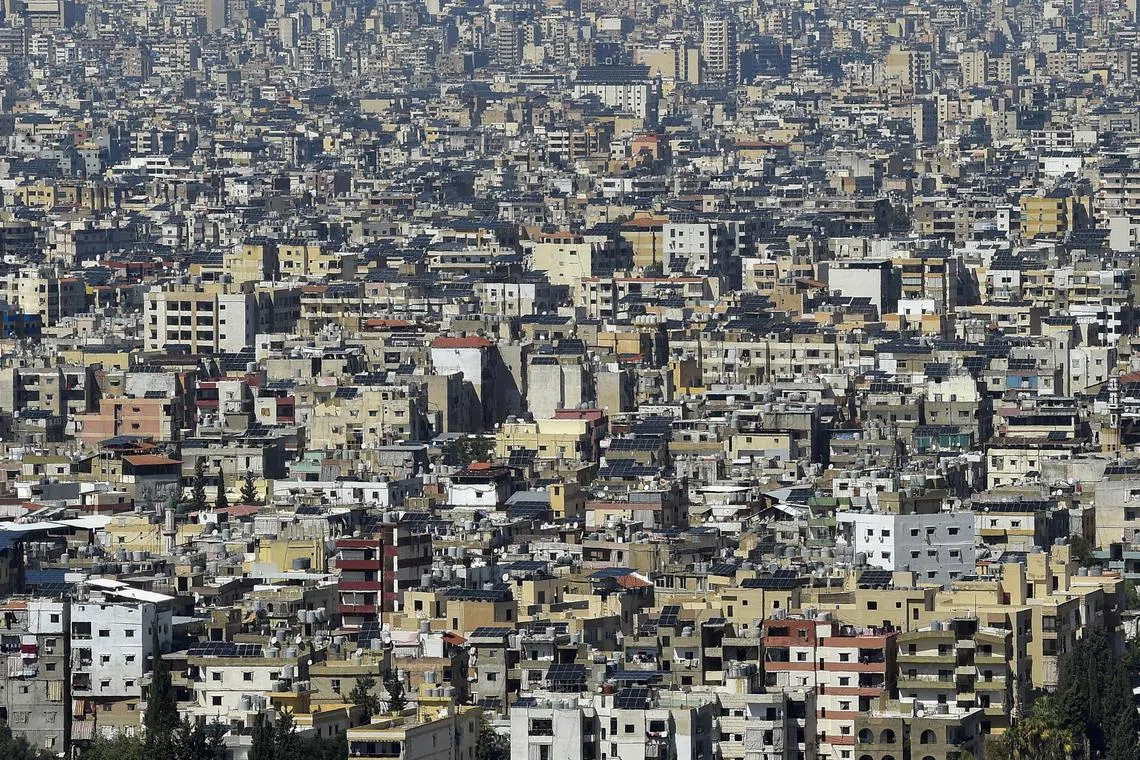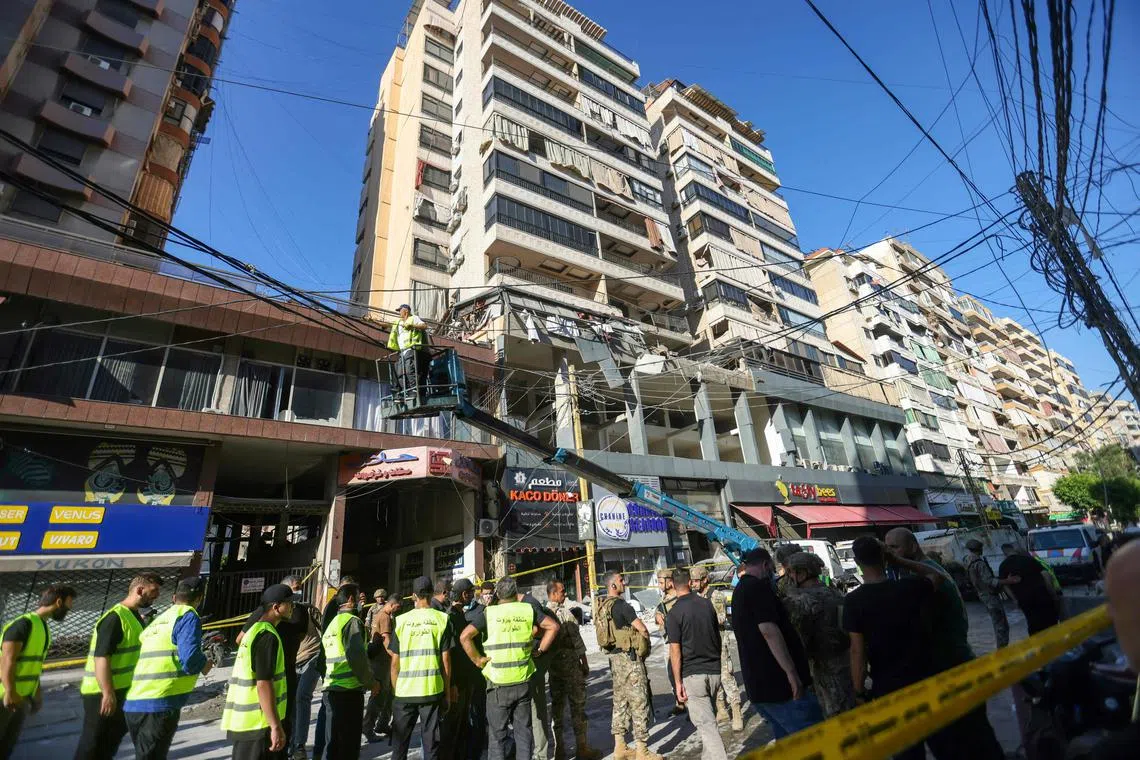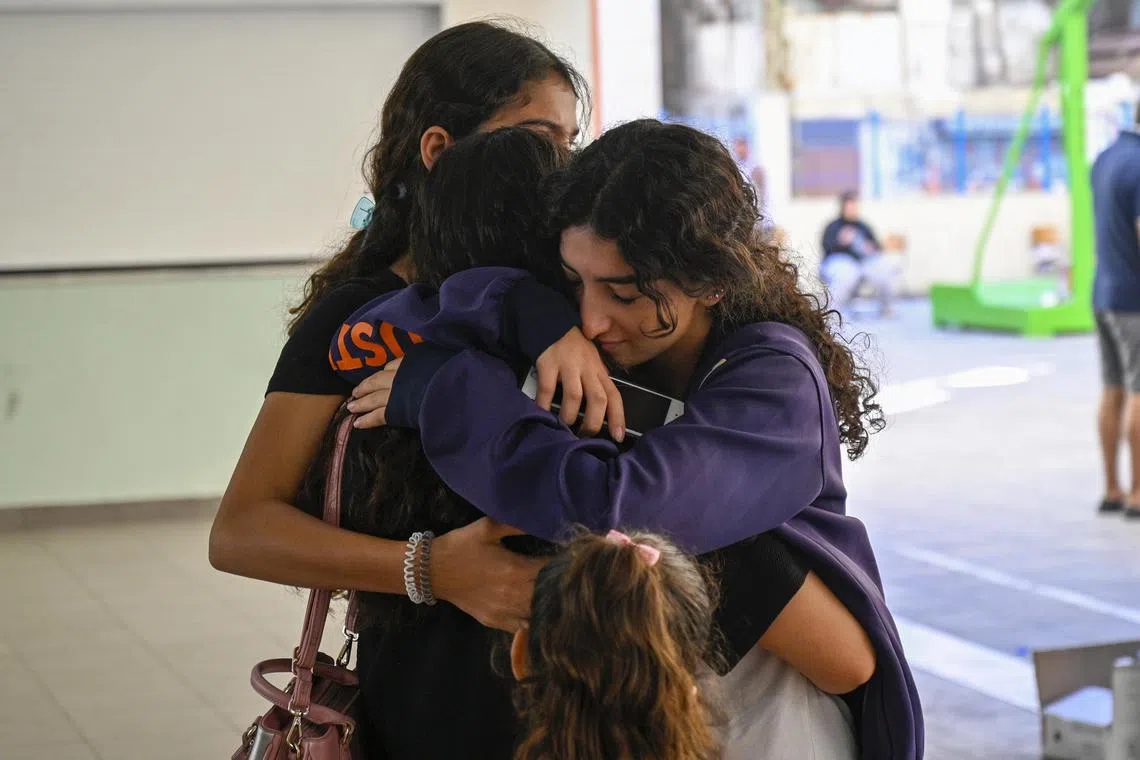Western states weigh up Lebanon evacuation options as ceasefire talks stall
Sign up now: Get ST's newsletters delivered to your inbox

A general view of residential buildings in a southern suburb of Beirut, Lebanon. Cyprus and possibly Turkey could offer sanctuary to tens of thousands of people if full-scale war breaks out with Israel.
PHOTO: EPA-EFE
Follow topic:
UNITED NATIONS/NICOSIA - Western nations were on Sept 26 weighing their options on how to safely get nationals out of Lebanon if a full-scale war breaks out, diplomats said, with Cyprus and possibly Turkey seen as offering sanctuary to tens of thousands of people.
Cyprus is the closest European Union member state, some 264km from Lebanon. It has been at the forefront of maritime aid efforts for Gaza and in the past was used to coordinate evacuations from Lebanon.
Cyprus processed around 60,000 people fleeing the Hezbollah-Israel war in 2006. A potential Israel ground invasion into southern Lebanon, with a response from Iran-backed Hezbollah of ballistic missiles and drones, could mean mass evacuations from both Lebanon and Israel.
“We have requests from a number of countries, not only from the European Union, but also from other third countries. We are ready to play this role in case of a need,” Cyprus President Nikos Christodoulides told Reuters on the sidelines of the UN General Assembly in New York.
“We did it back in 2006, and we are ready to do it again,” Mr Christodoulides said. “It is difficult, but also it is our moral responsibility.”
Several countries, including the US, France, Britain and Germany, have thousands of nationals living or travelling through Lebanon. All have worked in recent months to prepare plans with Cyprus in case of a full-scale war.
Diplomats said other nations without the needed military infrastructure in the region would also need help evacuating their citizens.
It takes about 10 hours by sea to reach Cyprus from Beirut and 40 minutes by plane. Until now, commercial airlines have been flying from Beirut, although some airlines like Air France have suspended operations, reducing options for people to leave.
Diplomats say that not only are Lebanese defiant and unwilling to heed travel advice to leave, but many Lebanese and dual nationals abroad have also been filling planes to Beirut.
Negotiations for a temporary ceasefire were under way at the UN in New York, but neither Israel nor Hezbollah indicated that they were ready to cease hostilities. Israel stepped up its strikes on Beirut's southern suburbs on Sept 26.
Key to evacuations will be the use of Britain's two military bases on the island. Britain, which has about 10,000 citizens in Lebanon, said this week that it was moving troops to Cyprus and had naval ships in place to help evacuations.
Western states were also working with Turkey to make preparations for the possible evacuation, most likely by sea from the port of Tripoli in northern Lebanon to Mersin in southern Turkey, if Lebanon's airports cannot be used, Turkish and European sources said.
No evacuation order has been given yet, and it was unlikely unless Israel amassed troops on the Lebanese border, diplomats said.

People and rescuers gather at the site of an Israeli airstrike targeting an apartment in Beirut’s southern suburbs, on Sept 26.
PHOTO: AFP
France has about 20,000 citizens in Lebanon and 1,000 troops as part of a UN peacekeeping mission. France's Defence Ministry declined to comment on specific planning, but said it has had robust plans in place since October 2023.
European diplomats said France has been liaising with the US, which has about 50,000 citizens in Lebanon, and with Britain and Germany, to coordinate with Cyprus.
Washington has urged US citizens to leave Lebanon, but the State Department has not ordered an evacuation of US personnel or requested assistance from the US military to evacuate Americans, US officials said.
US troops newly deployed to the region could help in the event of an evacuation, officials told Reuters.
Paris has a warship in the region that could evacuate about 150 people and a helicopter carrier on standby that could take 10 times that many, but it would take several days to reach the region from southern France, two French diplomats said.

Lebanese people fleeing Israeli airstrikes in the south of the country find shelter at an educational institution in Beirut, on Sept 26.
PHOTO: EPA-EFE
The French, Cypriot, Greek and Italian navies carried out drills in the region from Sept 14 to 18, including for evacuating citizens, according to France’s Defence Ministry.
One challenge will be to secure a quick air bridge out of Cyprus, given the large numbers of people arriving on the island in a short space of time, diplomats said.
“The real challenge in all this is that it is going to take a number of days, weeks even, to shift most foreign nationals out of Lebanon, excluding the possibility of Israel too, which means people in Lebanon may end up being told to ‘hang tight’ while Israeli F-35s and Hezbollah missiles zoom above skies,” said one European diplomat. REUTERS

